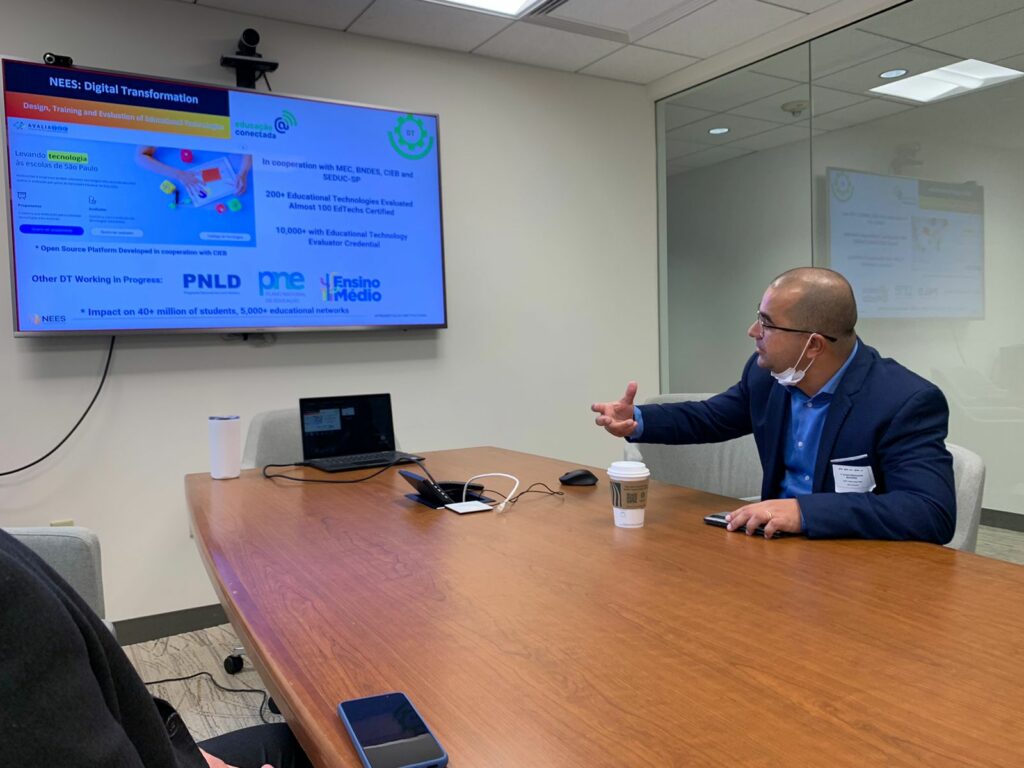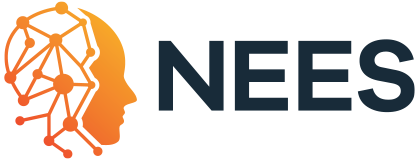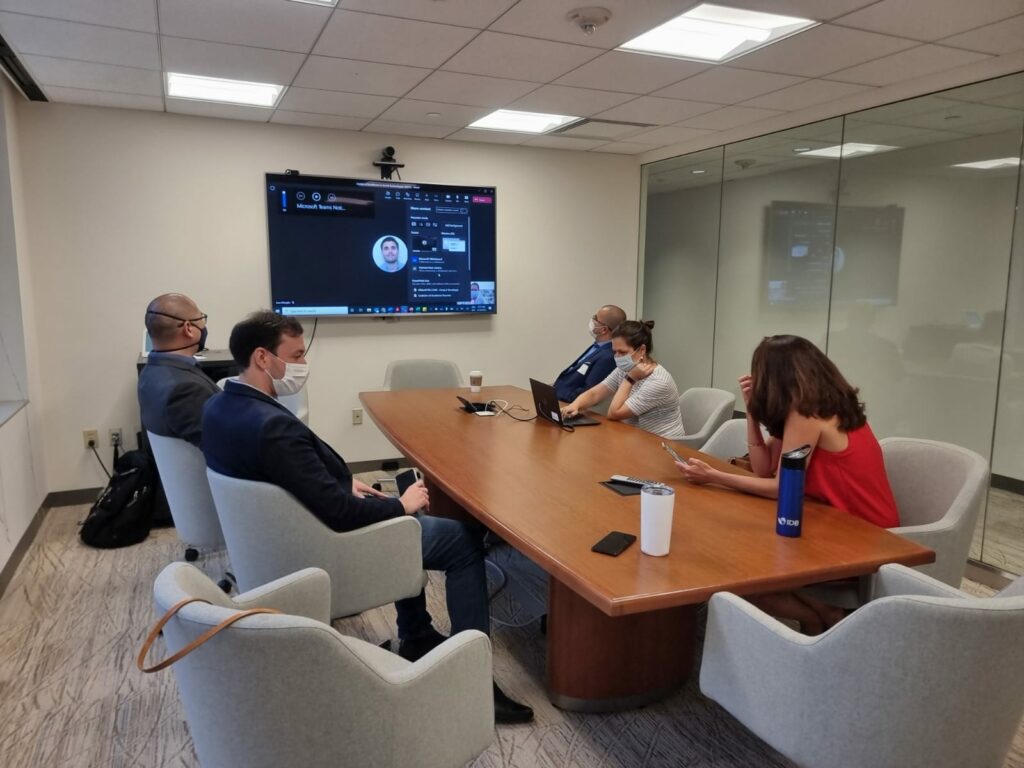In order to build future partnerships, researchers from the Center were at the institution’s headquarters in Washington on Friday, June 24

An alert system to prevent dropout and drop-out and an automatic correction tool for handwritten texts. These were the two projects of the Center for Excellence in Social Technologies (NEES) that gained prominence during the meeting with the Inter-American Development Bank (IDB).
Carried out in partnership with the Ministry of Education (MEC), the two projects are under development and have the potential to positively impact education in other regions of the world through, for example, the establishment of future partnerships between NEES and the IDB. Discussing these possibilities was one of the goals of the meeting held on Friday, June 24, at IDB headquarters in Washington, USA.
Considering the impacts of the coronavirus pandemic on education, these two NEES projects have even more relevance. Several countries have faced an increase in evasion and identified the need to recover learning. In Brazil, for example, the rate of children and adolescents out of school increased by 171% during the pandemic, according to a survey conducted by the Brazilian Institute of Geography and Statistics (IBGE).

Specifically, regarding the alert system, the researchers’ proposal is to apply technology to make predictions and allow education managers to act in the present to stop more students from dropping out. By crossing data from questionnaires and other government sources, the idea of the project is to create a solution to analyze the data and, through the use of predictive mathematical models, calculate the risk of evasion. With this system, it will be possible to monitor and forward personalized actions to students who are at greater risk.
The automated tool for correcting handwritten texts is a technological solution to support teachers by facilitating and speeding up the process of correcting handwritten texts. Using artificial intelligence tools, the researchers intend to train computers in the art of correcting, as well as allow students to be organized into groups according to their level of writing difficulties. In this way, it will be possible to help teachers in the arduous and challenging task of improving students’ writing skills.
The solutions were presented to the IDB by four NEES leaders: the director, Ig Ibert Bittencourt, from the Computing Institute of the Federal University of Alagoas (UFAL); Diego Dermeval, from the Faculty of Medicine of UFAL; Leonardo Brandão Marques, from the Education Center of UFAL; and Seiji Isotani, from the Institute of Mathematical and Computer Sciences (ICMC) at USP, in São Carlos. They were welcomed by Gabriela Gambi, IDB’s senior consultant for digital transformation. Seven other members of the Bank’s team also participated in the meeting.
It is worth noting that both projects are within the scope of actions foreseen by the National Policy for Learning Recovery in Basic Education. Published in the Union’s Official Gazette (DOU) on May 24, the policy is aimed at the implementation of strategies, programs, and actions to recover learning and face school evasion in basic education.
Text: Denise Casatti – NEES/UFAL Communication DepartmentL
More information IDB website: https://www.iadb.org/pt NEES/UFAL Communication Department: +55(11)9.9125.9459 Email: denise.casatti@nees.ufal.br


